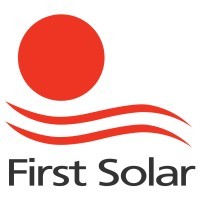Renewable Energy Jobs tagged "Water Treatment"
-
On-site Full Time 2 days ago
-
ExpiredTrinity, Alabama, United StatesOn-site Full Time 6 days agoUSD 23–32 per hour
-
ExpiredNew Iberia, Louisiana, United StatesOn-site Full Time 45 days agoUSD 23–32 per hour
-
ExpiredWaycross, Georgia, United StatesOn-site Internship 29 days ago
Water Treatment in Renewable Energy
Water treatment is a critical component in the renewable energy sector, particularly in technologies such as hydropower, geothermal energy, and bioenergy. It involves the processes used to make water more acceptable for a specific end-use, which can include industrial water supply, irrigation, or safe return to the environment. In the context of renewable energy, effective water treatment ensures the sustainability and efficiency of energy production processes.
Typical Responsibilities
Professionals in water treatment roles are responsible for designing, operating, and maintaining water treatment systems. This includes monitoring water quality, managing waste by-products, and ensuring compliance with environmental regulations. They may also be involved in system analysis to optimize water usage and reduce waste.
Required Skills and Qualifications
A career in water treatment typically requires a background in environmental science, chemical engineering, or a related field. Key skills include analytical thinking, problem-solving, and familiarity with water treatment technologies and regulations. Certifications such as Certified Water Treatment Operator (CWT) can be advantageous.
Impact on Renewable Energy Projects
Water treatment plays a vital role in maintaining the environmental sustainability of renewable energy projects. By ensuring that water used in processes like cooling in geothermal plants or as a medium in bioenergy production is treated and reused efficiently, these roles help minimize environmental impact and enhance resource management.
Industry Trends and Market Demand
The demand for water treatment professionals is growing as renewable energy projects expand globally. There is an increasing focus on sustainability and efficient resource use, driving innovation in water treatment technologies.
Career Opportunities and Pathways
Career opportunities in water treatment range from entry-level technician roles to senior management positions overseeing entire water treatment facilities. Professionals can advance into specialized areas such as environmental management or project management within the renewable energy sector.
Examples of Real-World Applications
Companies like Xylem and Veolia are known for their innovative water treatment solutions in renewable energy projects. Smaller startups are also making strides, such as Cambrian Innovation, which focuses on sustainable water treatment technologies for industrial applications.
Regional or Regulatory Considerations
Water treatment professionals must navigate a complex landscape of regulations, which can vary significantly by region. Understanding local and international standards, such as those set by the Environmental Protection Agency (EPA) in the U.S., is crucial for compliance and effective operation.
Challenges and Future Directions
Challenges in water treatment include managing the costs of advanced treatment technologies and addressing the scarcity of water resources in certain regions. Future directions may involve the integration of smart energy systems to enhance the efficiency and sustainability of water treatment processes.
Get Job Alerts
Get alerts for Water Treatment jobs
Featured Jobs
Renewable Energy Blog Posts
-

Renewable Energy Forecast for 2030
By 2030, renewables are poised to supply nearly half of global electricity, with solar and wind leading this explosive expansion. In this data-driven piece, we explore job creation forecasts, supply chain bottlenecks, and policy hurdles. -

Fastest Growing Renewable Energy Sector: Data and Trends
In 2023, solar photovoltaics surged by 32.59%, officially making it the fastest-growing renewable energy source worldwide. Yet offshore wind, which soared by 57.87% in 2021, remains a formidable competitor in total electricity output due to its high capacity factor. This concise overview highlights how policy incentives, cost reductions, and manufacturing advances are propelling solar to the forefront of the global energy transition. -

Career Opportunities in Solar Energy
The solar energy sector is experiencing unprecedented growth, with over 7.1 million jobs in solar PV alone as of 2023. For professionals considering a career shift into renewable energy, solar offers pathways across R&D, manufacturing, project development, and operations.








